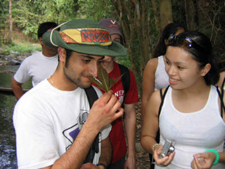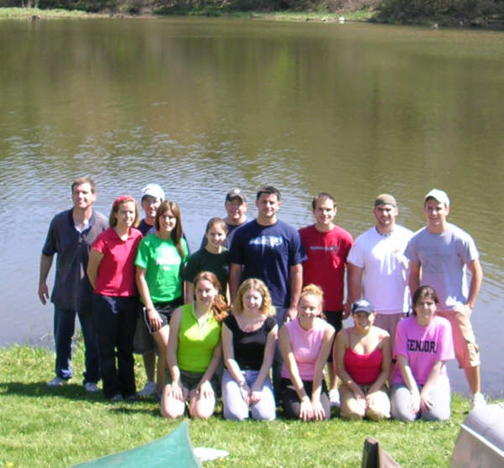Program and Curriculum
(See also Program in Biology on the U of S website)
Chair: Dr. Janice Voltzow
Courses in the Department of Biology are designed to achieve these major objectives:


1. To present students with the opportunity to develop the skills and competence pertinent to biological disciplines
- these skills include primary literature reading and comprehension, application of the scientific method, writing and/or presentation of scientific information and data, laboratory techniques and procedures, and technology
2. To encourage students to master and integrate scientific information
- this includes mastery of fundamental scientific facts, concepts and principles which are needed for an understanding of the living world and people's relation to it, application of scientific principles to practical situations; understanding the hierarchical relationships of the various fields of biology, and how the different levels (molecular, cellular, organismal, and ecosystem) are interrelated and integrated.
In addition to coursework, we encourage students to participate in activities that allow them to apply their knowledge and expertise in real-world situations in the form of Research and/or Service Activities.
Ultimately, the Bachelor of Science in Biology program provides our graduates with thorough preparation for employment in a number of different fields as well as supplies our graduates with undergraduate preparation meeting all requirements and recommendations of professional schools (Medical, Dental, Veterinary, etc.) and of graduate programs in the biological sciences.

The department's record in the preparation of health pre-professionals is impressive. Our record is also outstanding as one of the baccalaureate sources of Ph.D.'s in the biological sciences. A 1988 study by the Office of Institutional Research at Franklin and Marshall College shows that over the last 66 years, the University of Scranton ranked 48th out of 877 4-year, private, primarily undergraduate institutions. In addition, many of our graduates have gone on to fields such as pharmaceutical sales and research, business, and law.
Curriculum
To receive a Bachelor of Science in Biology at the University of Scranton, students must complete the following course requirements
1. Fulfill the requirements of the university's General Education Curriculum (See the University's Undergraduate Catalog for more details ). These courses include Humanities, Social and Behavioral Science electives, Theology and Philosophy, Literacy (writing and computers), Cultural Diversity, and Writing Intensive courses.
2. Cognate courses: these provide majors with the critical math and science skills. These requirements include Quantitative Reasoning (Pre-calculus Math and Calculus), General and Analytical Chemistry, Organic Chemistry, and Physics.
3. Biology major courses: once students successfully complete the General Biology courses, they are required to take an additional 34 biology credits. In selecting electives at least 1 course must be taken in each of the following Course Areas: Cellular, Genetics, Molecular, Organismal, or Population. Specific information on these courses can be found here or in our Undergraduate Catalog (which also has a detailed four-year curriculum plan

Academics
Contact Us:
Loyola Science Center
The University of Scranton
Scranton, PA 18510-4699
Phone: 570-941-6117
Fax: 570-941-7572





